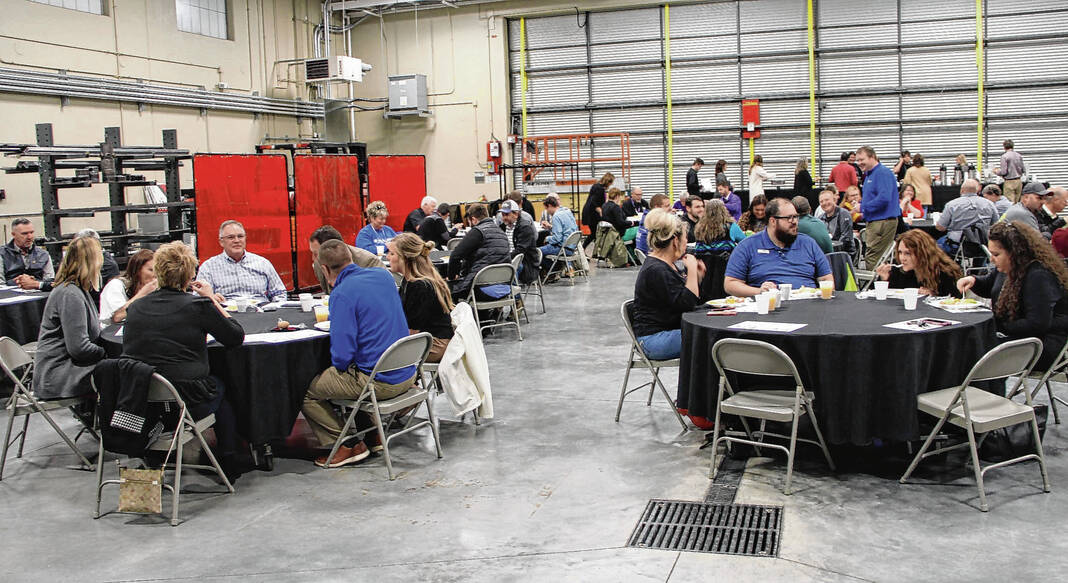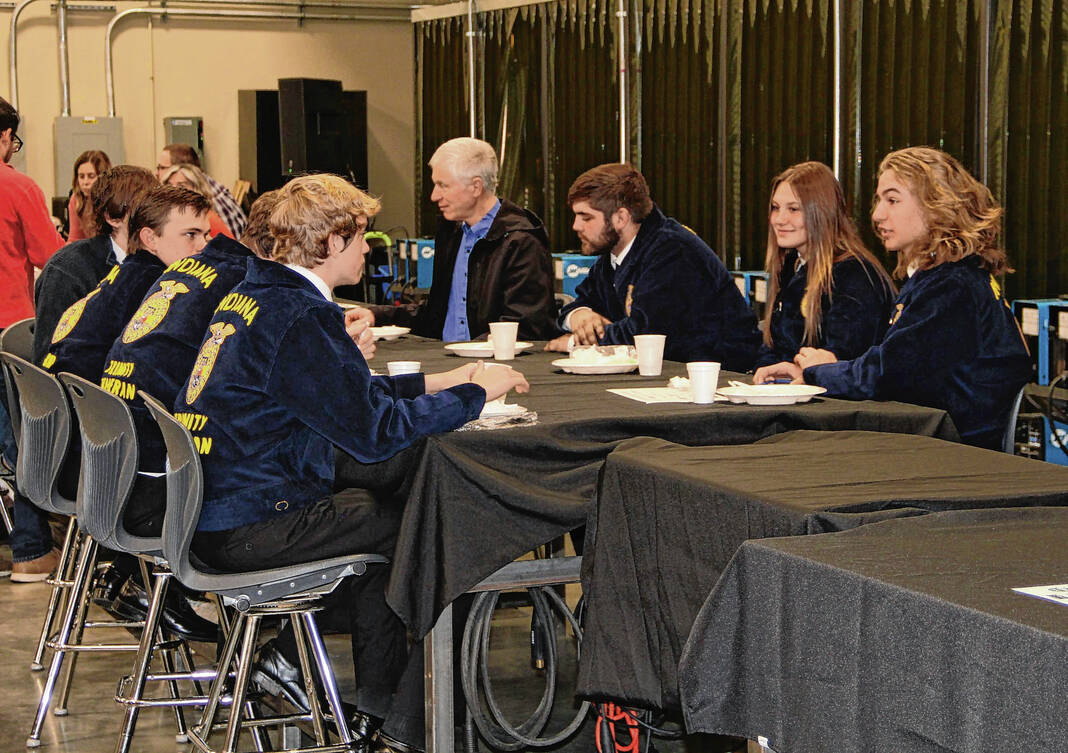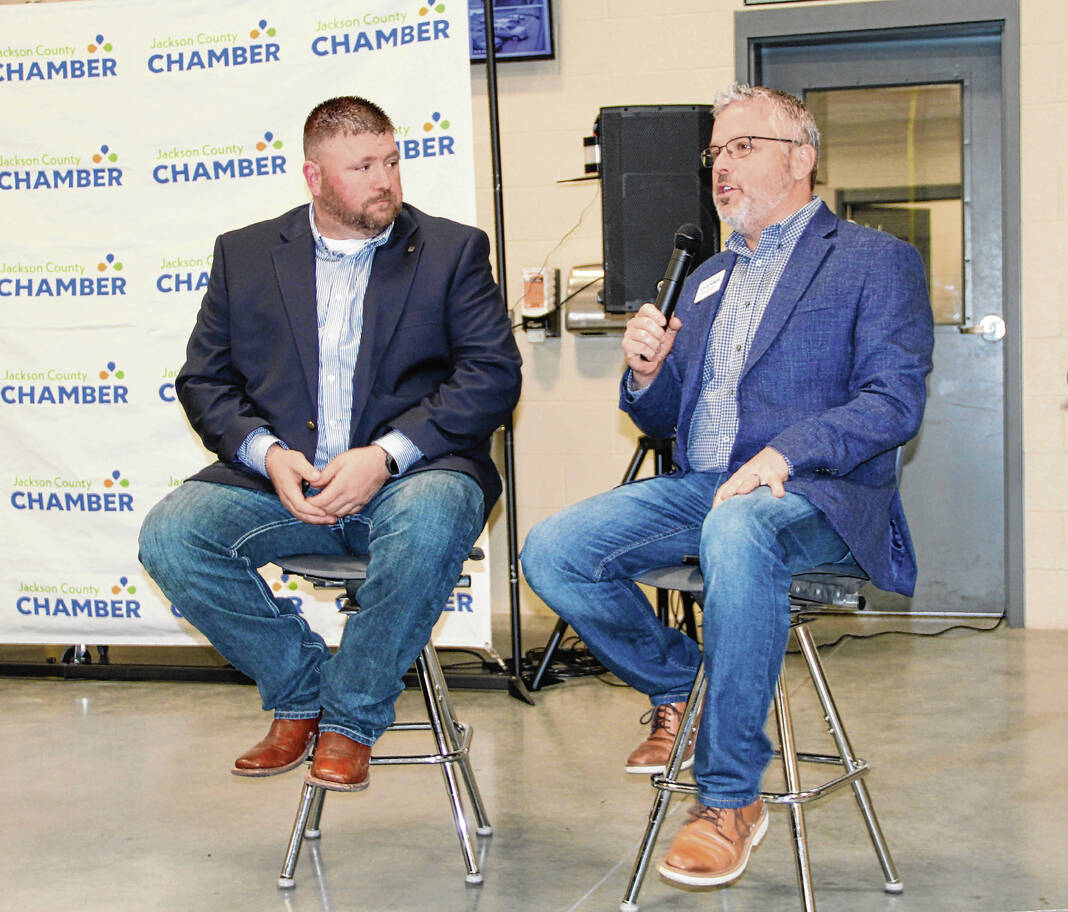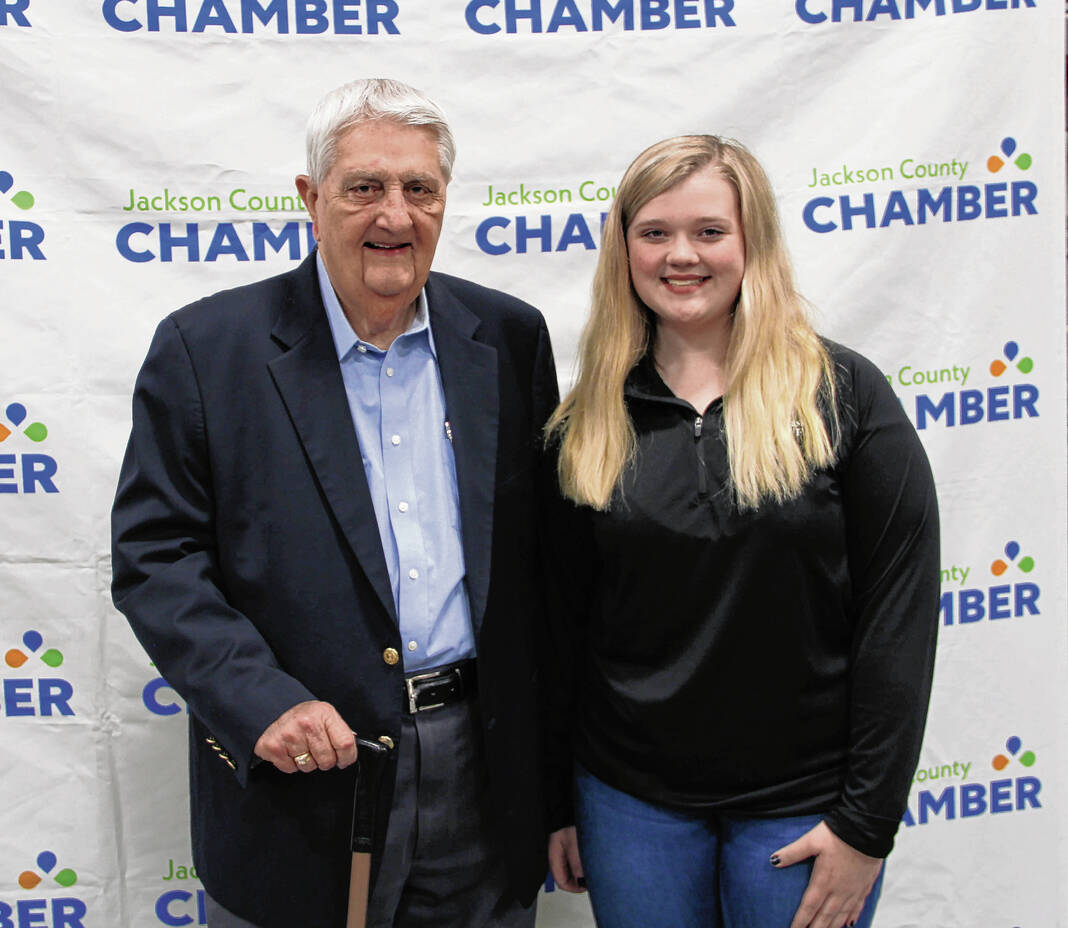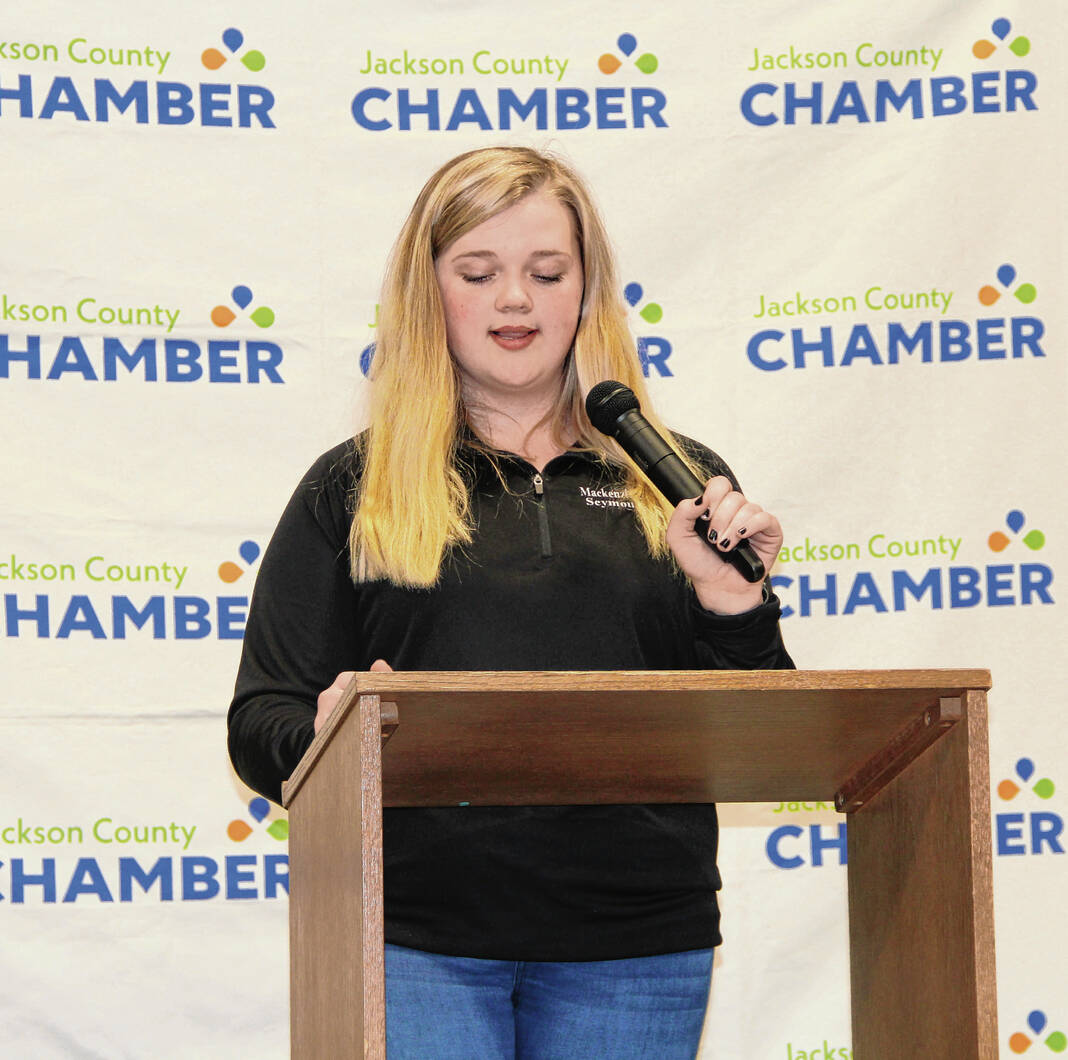The annual Jackson County Chamber Ag Breakfast is an opportunity to connect, build and grow the relationship between the agriculture and business communities in the county.
The breakfast is free to chamber members, area farmers and FFA students and was held Friday at the Seymour Ag-Science and Research Farm in the Freeman Field Industrial Park.
Chamber Director Dan Robison welcomed attendees and introduced the Rev. Ralph Blomenberg, pastor at Immanuel Lutheran Church in Seymour, to give the invocation.
After the breakfast, Dick Moren, chairman of the chamber agribusiness committee, stepped up to the podium to say a few words as he welcomed the FFA chapters to the breakfast, their advisers and the agribusiness committee.
Moren said he has been on the committee for 55 years, and about 50 of those years, he has spent as chairman, and it was time for him to retire, so this would be his last Chamber Ag Breakfast as chairman.
Robison then asked everyone to give Moren a round of applause for all of his years of serving on the committee.
Next up was agribusiness committee member Richard Beckort, who announced this year’s Dick Moren Agribusiness Scholarship winners to the approximately 80 attendees.
“One of my favorite parts of the program is to introduce the scholarship winners, as it improves my faith in humanity when I see these kids up here with their thought process on the future of agriculture in Jackson County,” he said.
Beckort said the agribusiness committee always uses some of the sponsorship money to give scholarships to future college students who are planning to study agriculture.
“As part of that scholarship process, students are asked to write a 1,000-word essay,” he said. “This year’s topic was ‘How would you convince one of your friends not in an agricultural family to take up agribusiness as their career?’”
The $1,500 scholarship winner was Mackenzie Waskom, a student at Seymour High School, and the $1,000 scholarship winner was from Brownstown Central High School, Dylan Wischmeier, who was not able to attend the breakfast.
Waskom, the daughter of Brent Waskom and Jill Waskom Kloss, said she plans are to attend Purdue University for an animal science concentration and hopefully go to veterinary school.
“I felt really good about winning the $1,500 scholarship and really wasn’t expecting it,” Waskom said.
Reading her essay, Waskom said stigmas surrounding the agriculture industry typically discourage those without an agriculture background from taking up a career in that field.
“As an advocate for an industry which is so close to my heart, I realize there is a need for strong, skilled and capable candidates to enter the agriculture industry,” she said. “Supporting agribusiness by recruiting and retaining employees will help the industry to continue to support our growing population.”
Waskom said it also is vital for everyone to understand a career in agribusiness does not require an agriculture background.
“The career opportunities within agribusiness are vast and overall vital to our American economy and food supply,” she said. “Since the food demand is expected to increase so dramatically, new practices and techniques will need to be implemented to guarantee enough food products can be produced.”
She said this growing demand for agricultural commodities will require an increase in job opportunities.
“The size of the average farm is growing; therefore, those who are true farm owners need reliable and skilled employees or contractors to assist on the farm,” Waskom said. “The agriculture industry provides a wealth of job opportunities that require a vast array of skill sets and work experiences, and this industry provides all people with their basic needs for survival, including food, clothing and shelter.”
The bottom line is that agriculture provides the basic necessities for humanity, and as the world population grows, job opportunities also will grow due to new economic demands, she said.
Waskom concluded by saying those seeking a career in agriculture will find job security, as their skills, talents and ideas are needed to secure a safe and reliable food, shelter and clothing supply for the rest of the world.
In Wischmeier’s essay, he wrote how beginning a career in agriculture can sound intimidating to someone who has never experienced the field before.
“There is so much more to agriculture than feeding animals and driving tractors,” he wrote. “Agriculture is an area that is very broad and has so many opportunities for people of all backgrounds, experience or not.”
Wischmeier said agriculture is a field that is always growing and evolving with the world and technology.
“Pursuing a career in agriculture can be for anyone. A few of these reasons are you’ll be making a difference in the world, a shortage in the job force, agriculture is everywhere, the industry is always growing and a wide variety of technology,” he wrote. “There’s the ability to join the next generation of agriculture, a competitive salary, job security and a vast array of job opportunities.”
Wischmeier’s essay stated agriculture is such a unique space for people to get involved in, experience or not, and it offers great potential for jobs and provides its workers with amazing benefits and opportunities.
He concluded by writing how he believes there is not a single greater field for anyone to work in, and he would recommend everyone to get involved in agriculture to have the chance to see the real-world results of their labor firsthand.
The guest speaker for the event was Dan Vague, director of swine production at Premier Ag, in a question-and-answer panel setting with Robison asking him questions.
Vague explained how Premier started a wean-to-finish swine production operation in 2004, where younger producers generating livestock income would not have to take on all of the risk themselves.
“The reason we started this was to get a revenue stream for young farmers to come back to the farm,” he said. “What I mean by wean-to-finish is we bring the pigs into our barns at around three weeks of age. Then we will grow them out to about 280 pounds, which takes about five months. Then they’ll be ready for the market.”
Vague explained how cleaning and sanitizing the pig barns are key tools for the prevention of diseases in pigs.
“On the horizon, we would like to increase our production and just recently merged with White River Co-op,” he said. “We’re continually looking to expand.”
For information about Premier Companies’ livestock production, visit premierag.com/livestock.


